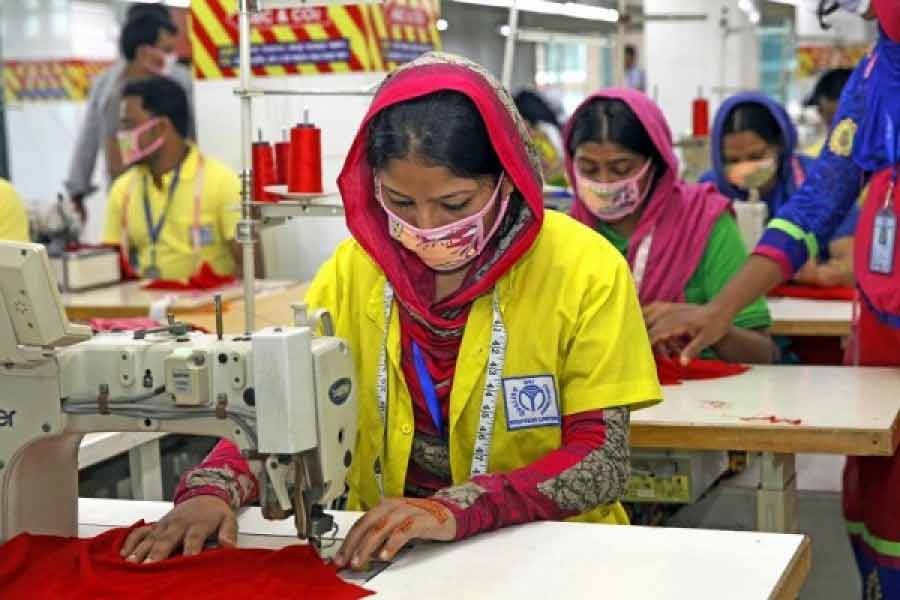
Published :
Updated :

Bangladesh has once again been ranked among 10 worst countries in the world where labour rights are not guaranteed. The International Trade Union Confederation (ITUC) has given the grade to the South Asian country for the fourth consecutive years since 2017.
The Global Rights Index 2020 pointed out violence, mass dismissals and regressive laws for the situation in Bangladesh.
About 46 per cent out of 1,104 trade union registration applications examined between 2010 and 2019 were rejected by the Department of Labour in the country. Of the 575 unions registered, 62 are inactive due to anti-union retaliation and 81 unionised factories have been closed.
Workers in Bangladesh could not exercise their basic rights at work without fear of retaliation and brutal repression, according to the survey.
The index ranked 144 countries in one-five categories against 97 internationally recognised indicators to assess where workers' rights are best protected in law and in practice.
A new trend shows multiple scandals over government surveillance of union leaders in an attempt to instil fear and put pressure on independent unions and their members. In many countries including Bangladesh, repression of unions and governments' refusal to respect rights and engage in social dialogue exposed workers to illness and death.
The countries with the rating of 5.0, according to the report, are the worst places in the world to work in. While the legislation may spell out certain rights, workers have effectively no access to these rights and are, therefore, exposed to autocratic regimes and unfair labour practices, it added.
About 85 per cent of countries violated the right to strike and 80 per cent the right to collectively bargain. The number of countries that impeded registration of unions has increased while 56 out of 144 nations deny or constrain freedom of speech, according to the key findings.
It found cases in Bangladesh where labour courts accumulated a three-year backlog while a staggering 18,000 cases filed by workers are still pending.
In Bangladesh, the report said, a new section of the Department of National Security under the home ministry was created to target garment trade unionists for surveillance. Since September 2019, industrial police have visited garment federations, seeking their monthly activities, expenditure, members' names, participants of their activities as well as the labour disputes they handled.
The rating is linked to dysfunctional legislation as a result of any internal conflict or military occupation and has equally limited labour rights like fifth category.
In another development, the Office of the Ombudsman of the European Union has recently turned down the plea from a group of labour rights organisations for withdrawal of GSP facilities being enjoyed by Bangladesh for alleged violation of labour rights. The organisations filed the complaints with the EU Ombudsman against the European Commission, claiming that it had failed to investigate the alleged labour rights violations.
Commenting on the EU Ombudsman's verdict, analysts in Bangladesh say that it gives the country's garments sector a breathing space. But at the same time, it should be remembered that the EU is observing the country's state of labour rights and it can withdraw the GSP if Bangladesh fails to meet the requirements, analysts cautioned. As such, they say, the country's industrial units have to ensure labour rights and other compliances.
Workers of Bangladesh, indeed, face hazardous working conditions and very low wage, even though there has been a slight raise recently. Moreover, minimum wage laws and other labour rights protections face serious lack of enforcement.
The main reason behind the lack of enforcement of labour law is ignorance of the employers and workers as well as the government's unawareness. As such, unhealthy work environment, low wages, gender discrimination, child labour and many illegal practices in the workplace are still common in the country.


 For all latest news, follow The Financial Express Google News channel.
For all latest news, follow The Financial Express Google News channel.